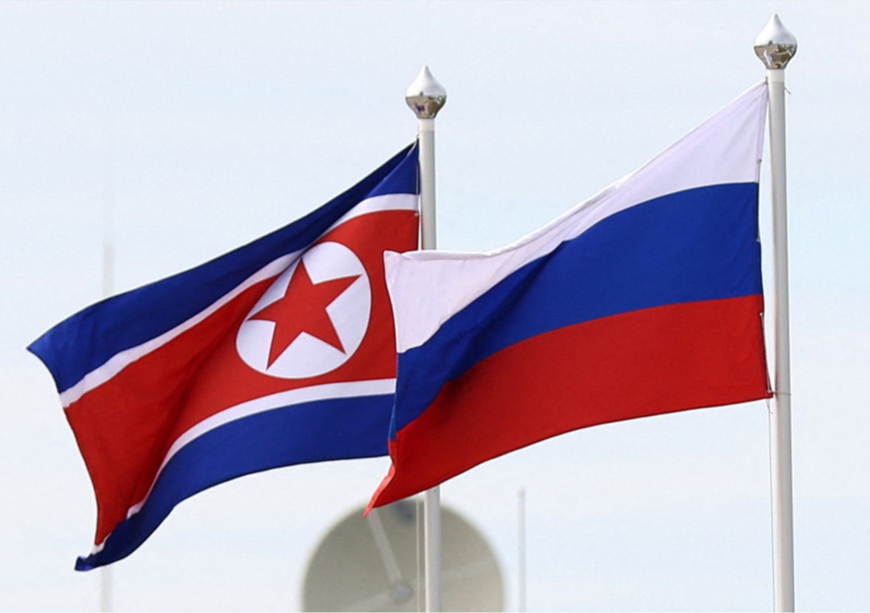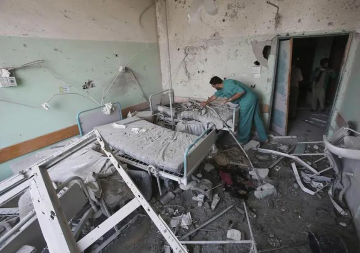
In the years leading up to the Ukraine war, due to sanctions and markets shifting to Asia, Russia's interests in the affairs of the Euro-Atlantic region waned, and this resulted in Moscow's inevitable pivot to Asia. The Ukraine war geopolitically re-configured Russia's priorities in the Indo-Pacific, reigniting a relationship with North Korea that had lost its relevance with the end of the Cold War. Although the brewing closeness between the two countries is a factor of their weakening internal political situation, it is also a microcosm of a larger shift that the Northeast Asia region will have to confront sooner or later, that is, the increasing power dynamic. As states see new geopolitical equations emerge, they are forced to recalculate their strategic assessments and act accordingly, as is the case of Pyongyang and Moscow. This year marks the 75th year of bilateral relations between the two nations and Russian President Vladimir Putin could visit Pyongyang, marking the first visit after 24 years. As the balance of power is tilting in North East Asia, it is critical to perceive the nature of the Russia-North Korea cooperation in this emerging geopolitical alliance context.
Trajectory of Russia and North Korea ties
The connection between the two states, North Korea and Russia (erstwhile Soviet Union), goes back to the late 1940s. The ties between the two nations strengthened under the leadership of Joseph Stalin and Kim Il Sung. The Cold War Russia-North Korea relations were driven by shared ideological affinities as communist states, and their relations mushroomed while Stalin was ruling the Soviet Union. However, after the death of Stalin, the ties spiralled downward as an attempt was made to influence Kim Il Sung's political stature. This perception changed Pyongyang's relations towards Moscow till 1957 when the second cabinet formation was accepted, and, from then on, Kim became the only leader of North Korea.
Relations progressed positively till the breakdown of the Soviet Union, whose disintegration led to serious implications for Pyongyang and its economy, leading to one of the most unprecedented humanitarian crises in its history.
In 1961, North Korea signed a Treaty of Friendship, Cooperation and Mutual Assistance with Moscow and Beijing, which promised to defend the regime in case of attack. Relations progressed positively till the breakdown of the Soviet Union, whose disintegration led to serious implications for Pyongyang and its economy, leading to one of the most unprecedented humanitarian crises in its history. Under Russian President Boris Yeltsin, relations with North Korea were ignored. At the turn of the century, Putin made serious efforts to rekindle relations, however, much progress didn't happen as Pyongyang entered into a series of negotiations with the United States (US), which later failed with North Korea’s first nuclear weapon test. Moscow and Beijing supported the subsequent United Nations Security Council (UNSC) sanctions, which seriously affected the relationship. However, the trend changed with the Russian invasion of Ukraine, as both parties saw an opportunity to come together against the new alliance formation in Northeast Asia.
Russia-Korea relations post-Ukraine
In 2023, the exchange started with the Russian defence minister's visit to Pyongyang, followed by the first visit of Kim Jong Un to a foreign country post the COVID-19 pandemic. Following Kim's visit, the North Korean foreign minister, Choe Son-Hui, visited Moscow, and the Russian Foreign Minister, Sergey Lavrov, made a reciprocal visit to Pyongyang to discuss strengthening relations. All these visits have fast-tracked the ties between the two countries at bilateral, regional and institutional levels. Recently, the Russian director of the Foreign Intelligence Service, Sergey Naryshkin, visited Pyongyang, after which an unprecedented decision took place in the UNSC, where Russia vetoed the decision to continue the extension of the UN Panel of Experts on North Korea sanctions established under the UNSCR 1718. After its open actions supporting North Korea, Russia's relations with even US allies like South Korea and Japan have deteriorated.
Following the Ukraine crisis, Pyongyang saw a window of opportunity to side with Russia and extended its support for war unequivocally. Although this started with just an opportunistic move, it later manifested in substantial support. Russia received North Korean weapons, which made a dent in the Russia-Ukraine war, and, similarly, Pyongyang received technical help in its Spy satellite launch last year.
Thousands of North Koreans work in Russia. With migrant labourers from the Commonwealth of Independent States (CIS) leaving Russia, Russian companies are interested in hiring workers from North Korea.
As North Korea attempts to modernise its military with new systems, it is desperately looking for defence partners. While Russia may not engage in a defence partnership with North Korea, it can certainly boost its non-nuclear capabilities. Over the years, the people-to-people ties between North Korea and Russia have improved. Thousands of North Koreans work in Russia. With migrant labourers from the Commonwealth of Independent States (CIS) leaving Russia, Russian companies are interested in hiring workers from North Korea. In 2022, more than 31,000 workers in Russia came from North Korea. Furthermore, at the end of 2023, an application was submitted to hire more than 2000 workers in the construction sector from North Korea; this seems to be the first tranche that will likely be followed by more worker mobility in the near future.
Russia and the Indo-Pacific factor
Besides the immediate need for military equipment, one major factor dictating this relationship is the Asia-Pacific factor. Pyongyang sees an emerging US alliance taking shape in its vicinity as threatening its security; therefore, as a means to counter this alliance, it wants to foster a comprehensive partnership with Moscow that stands apart as a suitable partner, especially today when it faces strategic isolation from the West. Conversely, for Moscow, this is a strategic bet that secures its position as a vital stakeholder in this emerging Northeast Asia political game, where it has a critical strategic interest. The 2023 concept of the Foreign Policy of the Russian Federation called for developing a broad international cooperation to counter policies aimed at dividing lines in the Asia-Pacific region, manifesting the importance of North Korea in its Asia-Pacific strategy. Although Moscow's immediate priority lies in its western flank with eastern Europe, it is not undermining the emerging challenge that the US and Japan's increasing partnership will pose for its own security ties with Japan, with whom it shares maritime territorial disputes. Hence, a strategic partnership between Russia and North Korea is in the mutual interest of both partners, aimed at diluting any security architecture that tries to threaten their respective security.
In addition to this, this further gives Russia the chance to become a relevant stakeholder in the Asia-Pacific (also known as Indo-Pacific) geopolitical calculations, which it has long been suspicious about. Russia's long-term interests converge with the Asia-Pacific, where it does not want any single player to become too dominant, particularly in the North Pacific region. In this strategy, North Korea helps to diversify Russia's strategic relations in the Asia-Pacific region, which comes with less investment and better future returns. For Russia, North Korea also becomes vital as it currently does not have many buyers, and those with whom it shares good relations are engaging in a hedging strategy between China and the US. For Pyongyang, this deal helps it become more relevant in Asia-Pacific security, further securing many benefits from Moscow and even Beijing, which is likely to sooner rather than later to play a more visible role with its two neighbours if things do not play out its way.
The NATO general secretary, Jens Stoltenberg, has called for further cooperation between the two sides standing against authoritarian forces.
Another important factor that pushes this relationship is the emergence of new players in the region, particularly NATO. Since the Ukraine war, a new concept has been pushed by the US and Japan, particularly the latter. This is 'indivisibility of security', which essentially means that the Indo-Pacific region's security is linked to Europe's security. A strategic connection between the security of the two regions has put North Korea and Russia on standby. This is visible in the NATO annual meeting in which South Korea and Japan are now regular invitees. The NATO general secretary, Jens Stoltenberg, has called for further cooperation between the two sides standing against authoritarian forces. Both capitals are cautious about any inter-continental alliance emerging against Russia and North Korea. Although Beijing is increasingly becoming a common subject in conversation, still it hasn't received the attention it needs. Therefore, the driving factors of this relationship are both short and long-term.
Beijing factor and the way forward
While Russian and North Korean ties are progressing faster than expected, we also witness a shift in Beijing's attitude towards Pyongyang. So far, Beijing has given a muted response to the Russia-North Korea relationship. However, in parallel it has increased its engagement with Pyongyang. Beijing’s muted response is an acceptance of North Korean and Russian relations, as it sees these developments adding to its strategic calculations, which aims to weaken the trilateral security mechanisms that it sees as threatening its hegemony in the region. If the geopolitical situation becomes threatening to Beijing due to an expanding US lattice framework in the Indo-Pacific, it is likely that it will be forced to develop closer relations with North Korea. Together, Russia and China's support of North Korea's economy will waste all sanctions efforts made by the US and its allies since 2009. This will also mark the start of another active Cold War, as it happened with the start of the Korean War in the 1950s. The war in Ukraine has created a butterfly effect, which may alter the security architecture of Northeast Asia; its initial characteristics can be observed through strengthening Russia-North Korea relations. In the coming years, it will be interesting to observe the trajectory of geopolitical developments in North-East Asia. However, the likelihood of confrontation is minimal.
Abhishek Sharma and Rajoli Siddharth Jayaprakash are Research Assistants with ORF’s Strategic Studies Programme.
The views expressed above belong to the author(s). ORF research and analyses now available on Telegram! Click here to access our curated content — blogs, longforms and interviews.




 PREV
PREV



